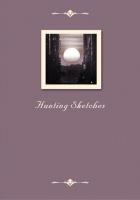16.V.infra,Ch.III.par.7.p.464.
17.In the Seventh Chapter of the First Book.The King has `attributes';[I Comm.242.]he possesses `ubiquity';[I Comm.Ch.
VII.pp.234,238,242.First Edition.]he is `all-perfect and immortal.'[IComm.Ch.VII.p.260.First Edition.]
These childish paradoxes,begotten upon servility by false wit,are not more adverse to manly sentiment,than to accurate apprehension.Far from contributing to place the institutions they are applied to in any clear point of view,they serve but to dazzle and confound,by giving to Reality the air of Fable.It is true,they are not altogether of our Author's invention:it is he,however,that has revived them,and that with improvements and additions.
One might be apt to suppose they were no more than so many transient flashes of ornament:it is quite otherwise.He dwells upon them in sober sadness.The attribute of `ubiquity,'in particular,he lays hold of,and makes it the basis of a chain of reasoning.He spins it out into consequences:he makes one thing `follow'from it,and another thing be so and so `for the same reason:'and he uses emphatic terms,as if for fear he should not be thought to be in earnest.`From the ubiquity',says our Author (1Comm.p.260)`it follows,that the King can never be nonsuit;for a nonsuit is the desertion of the suit or action by the non-appearance of the plaintiff in Court.''For the same reason also the King is not to appear by his Attorney,as other men do;for he always appears in contemplation of Law in his own proper person.'
This is the case so soon as you come to this last sentence of the paragraph.
For so long as you are at the last but two,`it is the regal office,and not the royal person,that is always present'.All this is so drily and so strictly true,that it serves as the groundwork of a metaphor that is brought in to embellish and enliven it.The King,we see,is,that is to say is not,present in Court.The King's Judges are present too.So far is plain downright truth.These Judges,then,speaking metaphorically,are so many looking-glasses,which have this singular property,that when a man looks at them,instead of seeing his own face in them,he sees the King's.`His Judges',says our Author,`are the mirror by which the King's image is reflected.'
18.The word demonstration may here seem,at first sight,to be out of place.It will be easily perceived that the sense here put upon it is not the same with that in which it is employed by Logicians and Mathematicians.In our own language,indeed,it is not very familiar in any other sense than theirs:but on the Continent it is currently employed in many other sciences.The French,for example,have their demonstrateurs de botanique d'anatomie,de physique experimentale ,&;c.I use it out of necessity;not knowing of any other that will suit the purpose.
19.Let this be taken for a truth upon the authority of Aristotle I mean by those,who like the authority of Aristotle better than that of their own experience.,says that philosopher,?,,.(understand ).Arise.Eth.ad Nic.L.I.c.1.
20.Offences,the Reader will remember,may as well be offences of omission as of commission.I would avoid the embarrassment of making separate mention of such Laws as exert themselves in commanding.
`Tis on this account I use the phrase `mode of conduct,'which includes omissions or forbearances,as well as acts.
21.Technical reasons:so called from the Greek ,which signifies an art,science,or profession.
Utility is that standard to which men in general (except in here and there an instance where they are deterred by prejudices of the religious class,or hurried away by the force of what is called sentiment or feeling),Utility,as we have said,is the standard to which they refer a Law or institution in judging of its title to approbation or disapprobation.Men of Law,corrupted by interests,or seduced by illusions,which it is not here our business to display,have deviated from it much more frequently,and with much less reserve.Hence it is that such reasons as pass with Lawyers,and with no one else,have got the name of technical reasons;reasons peculiar to the art,peculiar to the profession.
22.The reason of a Law,in short,is no other than the good produced by the mode of conduct which it enjoins,or (which comes to the same thing)the mischief produced by the mode of conduct which it prohibits.This mischief or this good,if they be real,cannot but shew themselves somewhere or other in the shape of pain or pleasure.
23.See in the Synoptical Table prefixed to our Author's Analysis,the last page comprehending Book IV.
24.It is that which comprises his IVth Book,entitled PUBLIC WRONGS.
25.Fragmenta methodi naturalis.LINNAEI Phil.Bot.
Tit.Systematica.par.77.
26.This title affords a pertinent instance to exemplify the use that a natural arrangement may be of in repelling an incompetent institution.What I mean is the sort of filthiness that is termed unnatural.
This our Author has ranked in his class of Offences against personal security',and,in a subdivision of it,intitled `Corporal injuries.`In so doing,then,he has asserted a fact:he has asserted that the offence in question is an offence against personal security;is a corporal in jury;is,in short,productive of unhappiness in that way.Now this is what,in the case where the act is committed by consent,is manifestly not true.Volenti non fit injuria .If then the Law against the offence in question had no other title to a place in the system than what was founded on this fact,it is plain it would have none.It would be shad Law altogether.The mischief the offence is of to the community in this case is in truth of quite another nature,and would come under quite another class.When against consent,there indeed it does belong really to this class:but then it would come under another name.It would come under that of Rape.















